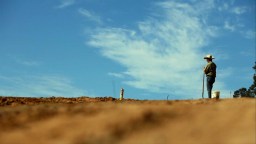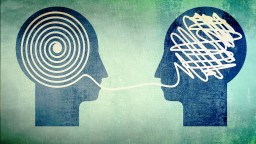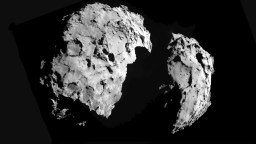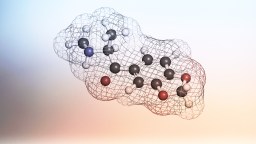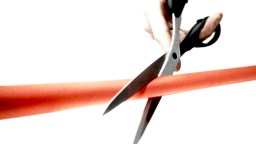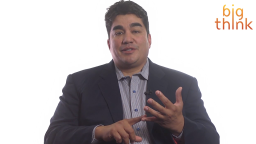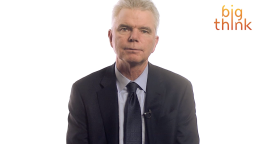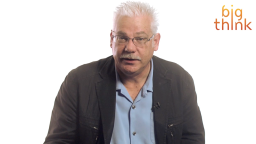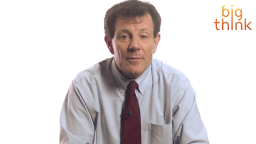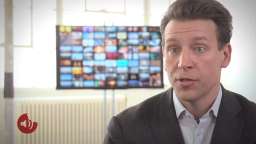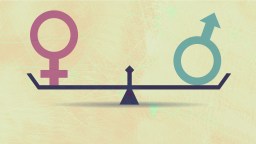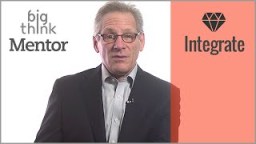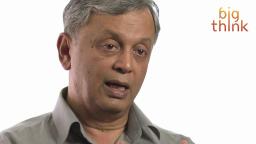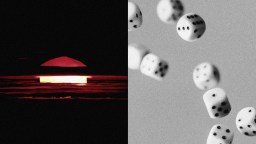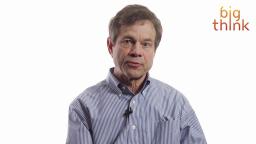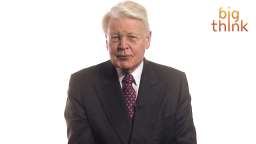All Videos
All Stories
The ABC News Correspondent discusses the myth of multitasking. “We literally neurologically cannot do more than one thing at a time,” says Harris.
▸
2 min
—
with
Filmmaker Sanjay Rawal discusses Food Chains, his new documentary investigating the supermarket industry and the plight of farm workers in the United States.
▸
4 min
—
with
A.J. Edwards is the director of the new film The Better Angels, which highlights the formative years of Abraham Lincoln. In this Big Think interview, Edwards explains his decision to shoot the film in black and white.
▸
3 min
—
with
While many problems around the world require public sector intervention, the private sector and its unique advantages have been underutilized in the worldwide effort to reduce poverty, promote education, deliver healthcare, and serve the world’s poor.
Julie Sunderland, the Director of Program Related Investments for the Bill & Melinda Gates Foundation, explains how the Foundation works to include and incentivize the private sector in order to accomplish these ambitious goals.
▸
5 min
—
with
Luis von Ahn, CEO of Duolingo and one of the inventors of CAPTCHA, explains how reCAPTCHA harnesses the abilities of both humans and computers in order to accomplish tasks such as the digitization of old books.
▸
3 min
—
with
A breakthrough in battery technology would spark a wave of exciting tech innovations.
▸
2 min
—
with
Philosopher Daniel Dennett discusses reductio ad absurdum, “the workhorse of philosophical argumentation,” wherewith thinkers test the validity of an opponent’s argument by taking it to its most illogical extreme.
▸
3 min
—
with
The president of Iceland explains the secret to the Nordic countries’ recent economic and social success. Social welfare programs such as free access to education and healthcare have proved to be a boon to the free market economy.
▸
4 min
—
with
Bill Nye the Science Guy discusses the Rosetta mission, which has landed a rover on the comet 67P/Churyumov–Gerasimenko. Not only is this ridiculously cool, Nye explains that we’re bound to discover something unexpected.
▸
3 min
—
with
Author and academic Kenji Yoshino describes the difference between passing and covering, and how companies will sometimes employ a facile form of diversity inclusion that necessitates the former.
▸
7 min
—
with
Steven Kotler, author of “The Rise of Superman,” discusses hypofrontality — literally the slowing of the prefrontal cortex — and how it allows one to enter an optimal state of consciousness known as flow.
▸
5 min
—
with
Author and environmental strategist Andrew Winston explains the unique ideas espoused in his book “The Big Pivot,” in which he promotes a green shift in business priorities away from short-term profits and toward long-term sustainability.
▸
5 min
—
with
Biologist Edward O. Wilson calls philosophy a “highly endangered academic species” and suggests that explaining the meaning of human existence necessarily falls to science instead.
▸
9 min
—
with
The former Huffington Post CEO discusses the similarities and difference between New York City and Silicon Valley with regard to technology startups.
▸
5 min
—
with
Sam Harris discusses the virtues of psychedelics such as LSD and MDMA. While he does not condone the use of these drugs without caveat, he does acknowledge their profound consciousness-altering properties.
▸
9 min
—
with
Venture for America is a non-profit fellowship program that grooms the next generation of American entrepreneurs by placing them in startup apprenticeships.
▸
5 min
—
with
Bill McDermott argues that the best business leaders put their family first and should demonstrate this as a best-practice for their employees. McDermott is the CEO of SAP, a multinational corporation that makes enterprise software to manage customer relations and business operations.
▸
3 min
—
with
Biographer Walter Isaacson discusses his new book The Innovators and why Steve Jobs was a prickly teambuilder.
▸
4 min
—
with
Iron Chef Jose Garces shares his culinary approach to parenting. It turns out even a celebrity chef sometimes falters by letting his kids eat junk food.
▸
2 min
—
with
Kip Tindell, CEO of the Container Store, explains that his employees are the company’s most valuable asset and that it’s important to pay them what their worth to foster a positive workplace culture.
▸
5 min
—
with
TechShop CEO and co-founder Mark Hatch discusses how TechShop can democratize the production of prototypes and products.
▸
8 min
—
with
Pulitzer Prize winning author Nicholas Kristof describes research on what provokes charitable giving.
▸
4 min
—
with
To succeed, your company needs to take advantage of the three biggest digital trends shaping the future: mobile, personalization, and data.
▸
4 min
—
with
Empowerment is not a zero-sum venture, says Landesa CEO Tim Hanstad. Educating the world about this fact will open the door for reform.
▸
4 min
—
with
In this 4-part Big Think Mentor workshop Stewart D. Friedman teaches us the skills we need to harmoniously integrate work and life. In this lesson Friedman introduces us to the […]
▸
with
Dr. Madhav Chavan describes how technological innovations are inherently non-linear, and therefore don’t easily transpose to the linear world of education.
▸
4 min
—
with
Michio Kaku describes how our prefrontal cortex disengages as we dream, thus suppressing the fact-checking component of our consciousness.
▸
5 min
—
with
Investigative journalist Eric Schlosser describes the terrifyingly close calls we’ve had with nuclear weapons, and the odds that a disaster would result in global catastrophe.
▸
11 min
—
with
Theoretical physicist Alan Lightman suggests that our universe is one of many possible variations, leaving physicists at a cosmological dead end. Lightman’s latest book is The Accidental Universe: The World […]
▸
3 min
—
with
Ólafur Ragnar Grímsson, the fifth President of Iceland, explains the perilous environmental situation in the Arctic in light of climate change.
▸
6 min
—
with

